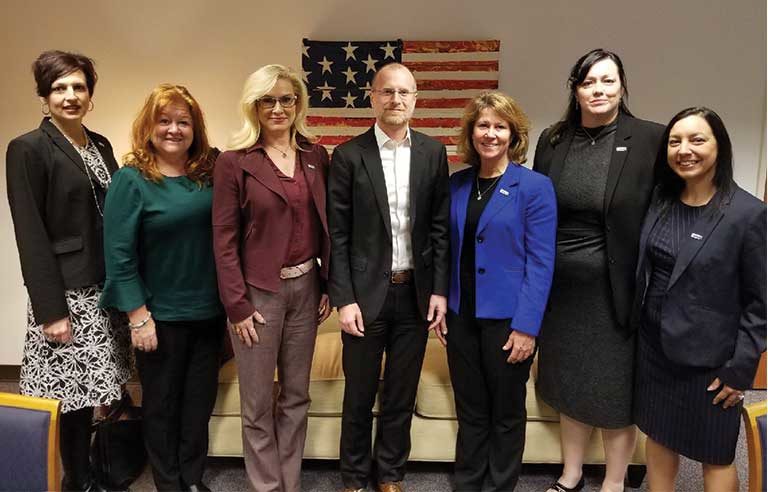Communication tower association: Women explore ‘untapped potential’ in industry where safety remains priority

Watertown, SD — Workforce expansion in the communication tower industry has created “a huge untapped potential for women” while enhancing the need for proper safety training for all workers, Andrea Lee, the National Association of Tower Erectors’ Women of NATE committee chair, said during a recent Federal Communications Commission podcast.
Lee, also co-founder of Springtown, PA-based Lee Antenna and Line Service Inc., appeared on the Feb. 19 podcast episode “Women in Wireless” to share her assessment of the state of women in the industry. Observing an increase of women as engineers, tower climbers, tower owners, and sales and administrative workers, she said they “can create something from the ground floor up,” but it all starts with safety.
“So we have to develop the training,” Lee said. “You know, when you have a mixed force out in the field, which has traditionally always been male, now we have to create rules and facilitate the different types of things that need to be met.”
And the more training, the better – specifically for tower climbers, Lee noted.
"Women in Wireless" episode from the FCC podcast:
“We send our employees out for as many safety skill sets, training certificates, as [there are] across the board,” Lee said. “Anything that we can get a hold of, we have every certificate in their wallet, yes.”
Lee was joined by Women of NATE committee member Miranda Allen, of Radiofrequency Safety International in Kiowa, KS. Allen advocated increasing awareness of communication tower opportunities for women through workforce development programs and similar resources.
Additionally, Allen lauded the industry’s ongoing collaboration with the National Wireless Safety Alliance, established in 2015. One initiative emphasizes performing self-audits to boost compliance and safe practices.
“We see it from the carriers on down to the individual contractors, and it needs to be that self-vetting and audits to make sure that they are qualified and skilled people out there in the field to keep safe,” Allen said. “Because, ultimately, at the end of the day, we want people to go home safely.”
Post a comment to this article
Safety+Health welcomes comments that promote respectful dialogue. Please stay on topic. Comments that contain personal attacks, profanity or abusive language – or those aggressively promoting products or services – will be removed. We reserve the right to determine which comments violate our comment policy. (Anonymous comments are welcome; merely skip the “name” field in the comment box. An email address is required but will not be included with your comment.)

